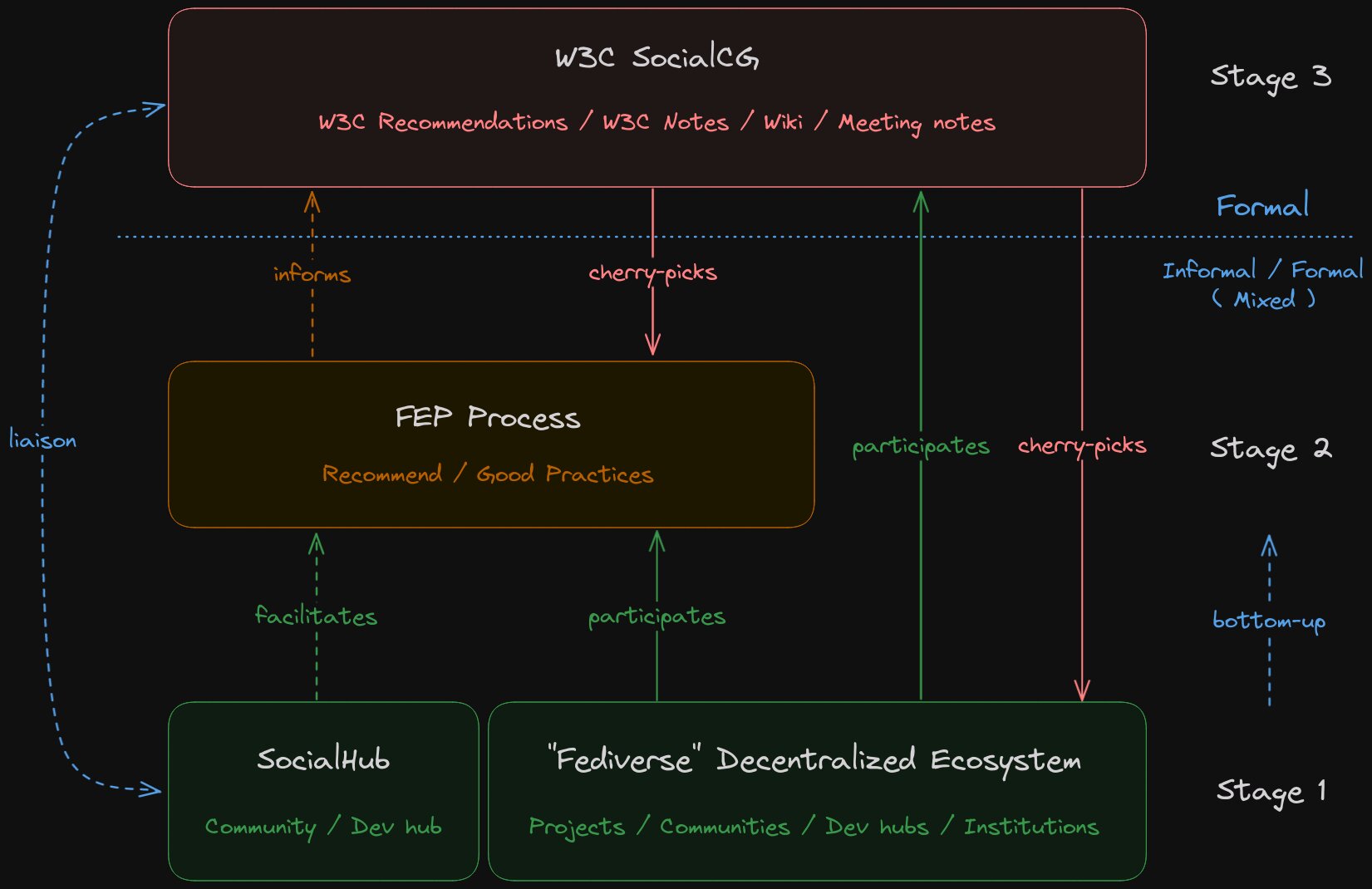Originally titled “Social Web: Our way or the highway” in a word-play on the US expression “My way or the highway” to indicate a choice that is in front of us:
- Either the Commons steps up and keeps having a say in the future of Fediverse / Social Web.
- Or commercial forces will lead us towards Big Fedi™. We go the way of the corporate web.
We are firmly on trajectory 2) as the Commons hasn’t been able to self-organize in any significant way. Our ecosystem is marked by fragmentation and individualism with only little collaboration and cross-pollination that leads to actual evolution of the technology foundations upon which we all stand.
Is that sad? Opinions vary, and there are those who think 2) is the best and only way forward. One thing is certain: Standing on the sidelines and that trajectory, a corporate takeover, is what we’ll get.
What happens in fedi’s future depends on our collective (in)action…
Social Web and SocialHub
Given recent developments I will pose some definitions:
Social networking: Any direct and indirect social interactions between people.
Social web: How we shape social networking online, given the technologies available to us.
Social hub: A developer portal where any person is welcome to help evolve the social web.
So what’s the status now? Among our ![]() achievements we find:
achievements we find:
![]() We have a grassroots, decentralized open ecosystem, with a bottom-up 3-stage dev process.
We have a grassroots, decentralized open ecosystem, with a bottom-up 3-stage dev process.
![]() We have a FEP process where collected 73 (!!) Fediverse Enhancement Proposals.
We have a FEP process where collected 73 (!!) Fediverse Enhancement Proposals.
I am particularly proud of where we collectively got the FEP process.
And here we start bumping into problems and areas where we ![]() must improve:
must improve:
- We got a basic discussion forum going here, but not in any way a community of action.
- We need more people in staff roles, as moderator, admin, or in the well-being team.
- We need more people facilitating the FEP process, and join heroes like @silverpill

- We need more input and feedback on improvements to make to the various processes.
- We need focus on streamlining collaboration across the 3-stages of the ecosystem.
- And then we need hands raised and people rolling up their sleeves to do actual work.
Do you see a role for the commons in the social web? ![]() Don’t be silent. Participate!
Don’t be silent. Participate!
- For AS/AP we have a list of improvements where you can give your input too.
- Volunteer yourself below and supply more suggestions for improvement.
